We often turn to over-the-counter allergy medications to combat hay fever, but essential oils offer a more natural solution to seasonal allergies. Drop the bottle of antihistamines and open your essential oils kit for the best relief this allergy season.
We’ll give you the scoop on which oils are best used for allergies and how to use them safely and effectively.
You’ll learn which oils are most effective at combatting allergies, how to properly use them, and precautions to take when using essential oils for allergies. We’ll take the guesswork out of choosing the right essential oils to use so you can fight allergies with confidence!
Table of Contents
Best Essential Oils for Allergies
Here are some of the best essential oils to prevent allergies. Add these to your essential oil collection and you’ll be better prepared for allergy season!
Peppermint Oil
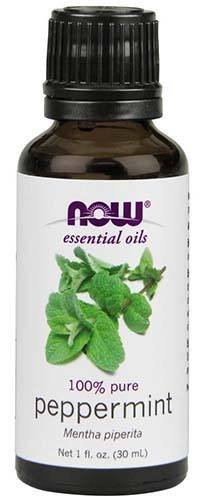
Several studies point to Peppermint being one of the most effective essential oils for allergies. One study found that Peppermint relaxed smooth muscle in animals, which reduced coughing.
Although the study only addressed animals, it is thought that humans can experience similar respiratory relief from the use of peppermint oil. Another study found that peppermint reduces the body’s allergic response internally. Allergens typically cause the production of histamines within the body, an inflammatory response that causes all of those pesky reactions like allergic rhinitis(inflamed nasal passages), itching, and sneezing.
Peppermint and other oils in the mint family were found to reduce the number of histamines present in a 2019 study. Not only does peppermint smell fresh and clean, but it can also help provide allergy relief.
Recommended Peppermint Essential Oil: NOW Solutions 100% Pure 1 fl. oz. (30 mL)
Frankincense Oil
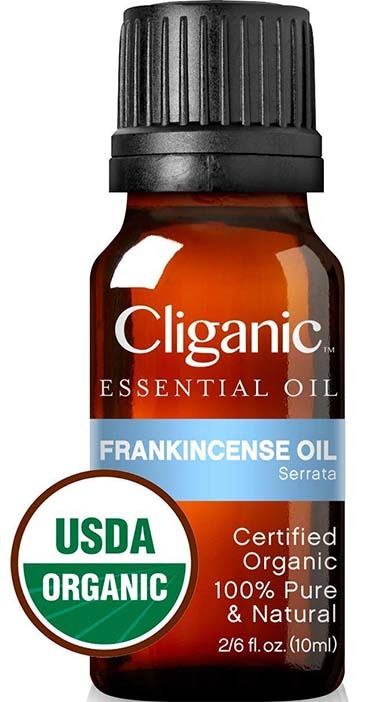
Frankincense is known primarily for its anti-inflammatory properties, making it fantastic for seasonal allergies. Some of the most significant studies of Frankincense reveal that it is not only anti-inflammatory but also a powerful antioxidant and antibacterial.
What does this mean for your allergy struggles? Reduced inflammation from inhalation of Frankincense is most significant in the respiratory system, meaning that you can diffuse Frankincense to help with coughing during allergy season.
The antioxidant and antibacterial properties of Frankincense are great for keeping potential infections at bay, especially those that develop from allergic irritation in the sinus cavity.
Recommended Frankincense Oil: Cliganic USDA Organic 100% Pure Undiluted (10 mL).
Eucalyptus Oil
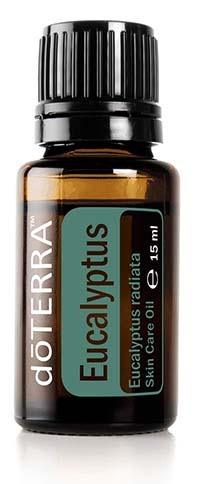
The eucalyptus plant is beautiful and comes from many species. The oil of eucalyptus has many uses as an essential oil, especially for treating allergies.
Like peppermint and frankincense, eucalyptus has proven to be effective at reducing inflammation in the upper respiratory tract where many allergy sufferers experience symptoms. In this study, patients were treated with diffused eucalyptus for both bacterial infections and non-bacterial irritation in the chest and both groups experienced reduced inflammation!
This is great news for an allergy sufferer! Additionally, treatment with eucalyptus showed reduced inflammation in the sinus. Coughing and sneezing due to allergies can be remedied with this amazing oil.
You can even make an essential oil blend with eucalyptus with oregano oil and peppermint oil for a lovely scent and a powerful mix of allergy-fighting ingredients!
Recommended Eucalyptus Essential Oil: doTERRA Eucalyptus Radiata (15 mL).
Lemon Oil
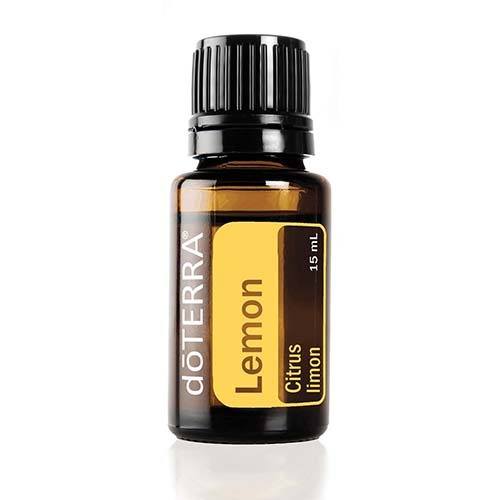
You may already know of the benefits of lemon essential oil for cleaning and love its delicious, bright scent. To make this amazing oil even better, it is also a great way to help reduce allergy symptoms.
Lemon is often used in cleaning because of its antibacterial properties, which makes it similarly great for allergy relief. In one study, a lemon essential oil nasal spray was even used to see if it reduced the number of allergens in the sinuses.
Amazingly, lemon essential oil was very effective in reducing allergens in the sinus, comparable to an over-the-counter nasal allergy spray! However, use caution if applying this essential oil directly to the skin.
Citrus essential oils have been known to cause harmful blistering and burning when applied to the skin before sun exposure. Keeping this in mind, lemon essential oil is a great addition to your essential oil allergy tool kit!
Recommended Lemon Oil: doTERRA Lemon Essential Oil (15 mL).
Lavender Oil
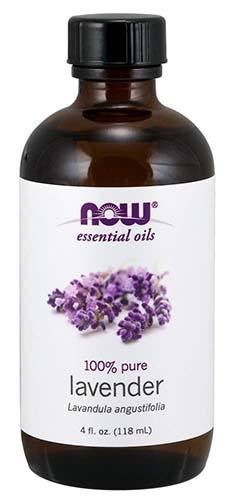
If you’re familiar with essential oils, you probably know about the calming properties of lavender essential oil.
Many sources recommend this essential oil for the allergy season for this reason alone, citing that increased sleep can have a positive effect on allergy sufferers. But there is additional information on lavender that makes this calming oil directly effective for allergies.
One study showed that diffused lavender resulted in reduced inflammation and mucus production in the bronchial cavity. Similar to the benefits of peppermint, lavender can relieve coughing from allergies!
Packing the additional punch of mucus reduction in the chest, this oil is great for allergy sufferers to inhale and can provide much-needed relief.
Aside from the benefits of diffusing lavender, it has also been shown to be helpful for skin allergies. If you struggle with allergic contact dermatitis(skin irritation when coming in contact with a particular allergen), mixing lavender with a carrier oil has been shown to help calm the skin and accelerate healing times.
Recommended Lavender Oil: NOW Foods Lavender Essential Oil (4 oz).
Tea Tree Oil
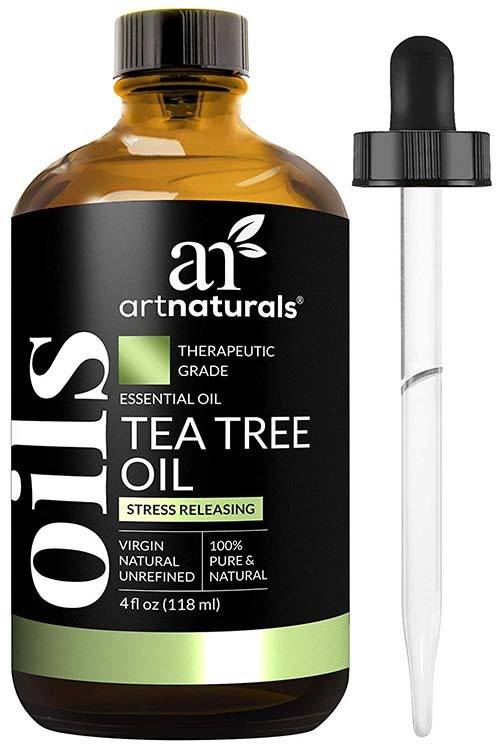
Tea Tree oil is another common essential oil that has a place in allergy prevention. This powerful oil is known as an antiseptic, anti-fungal, and even an antimicrobial agent.
However, the use of this oil for preventing allergies comes with a caveat. While tea tree oil has proven effective against skin irritations from allergies, it can also produce a rash or an allergic reaction in some individuals due to the potency of this essential oil.
It is recommended that this particular oil be used with a carrier oil like jojoba in order to reduce the chances of skin irritation from the use of this oil to prevent allergies. Try tea tree oil out the next time you have an allergic rash, but if you are unfamiliar with the effects of this oil be sure to use it sparingly until you know how it affects you.
Tea tree oil is also not recommended to be used internally, meaning that this essential oil is best at combatting skin allergies and should not be ingested.
Recommended Tea Tree Oil: ArtNaturals 100% Pure Tea Tree Essential Oil (4 fl. oz.)
Chamomile Oil
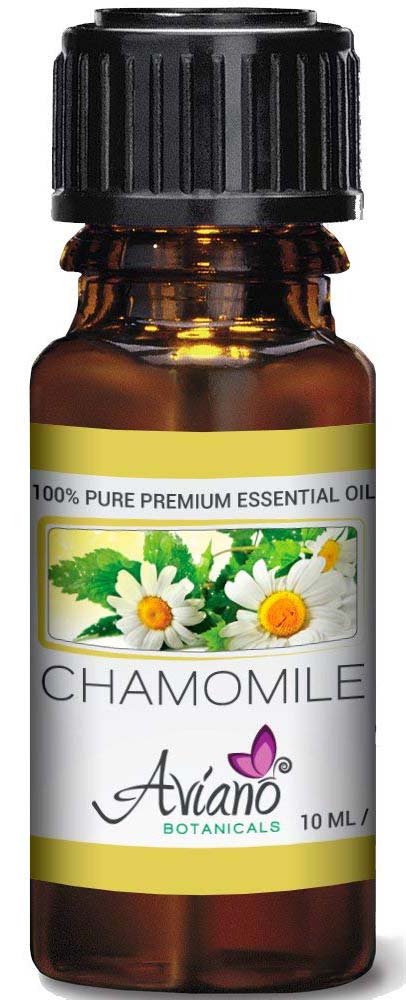
You might be surprised to see chamomile on the list of allergy-fighting essential oils, but chamomile can have some amazing benefits for allergy sufferers. Chamomile is proven to be a topical anti-inflammatory with studies showing reduced irritation with the application of chamomile.
Internally, chamomile has been shown to produce an increase in immune indicators with regular consumption, so you may even want to consider adding chamomile into your daily routine!
Aside from the benefits for allergies, chamomile is a fantastic calming oil. Diffuse chamomile and lavender for a great night’s sleep and added allergy prevention benefits!
Recommended Chamomile Oil: Aviano Pure Roman Chamomile Essential Oil (10 mL).
These are just a few of the amazing essential oils that can assist you during allergy season. There are many essential oil options for the treatment of allergies and their underlying causes.
I encourage you to do your own research as well to see what other oils could be beneficial to your unique needs!
Here Are Some Popular Carrier Oils:
Essential oils are extremely potent and can cause irritation if they are not adequately diluted. Use caution, go slow, and you will have a good essential oil experience.
Coconut oil is a popular choice because it also contains natural antimicrobial properties, making it a good option for treating skin allergies.
Jojoba oil is another good choice for a carrier oil to use as you are treating your allergy symptoms. Not only does it have antibacterial properties, it is also commonly used in massage because it readily absorbs into the skin. Unlike coconut oil, which can leave a layer on the skin, jojoba does not typically leave residue after application.
Gather your oils, make your allergy combinations, and you’ll be ready for the forthcoming allergy season! Be sure to check out some of our sources below for more in-depth research on the effects of essential oils on allergies.
Why Essential Oils are Good for Allergies
Soothing scents, no side effects, and proven efficacy – essential oils can truly be a powerhouse during the allergy season. In addition to some of the oils listed above for the relief of allergy symptoms, it is also thought that essential oils can treat the underlying causes of allergies.
Digging Into the Science
Scientific literature suggests that some of the main culprits of allergies are: poor gut health, an inflammatory diet, and systemic Candida overgrowth.
Essential oils are great for this because unlike traditional allergy treatment medications which only address the symptoms, there are also ways to leverage essential oils to treat these underlying causes of allergic response.
You might not think that the gut is related to an allergic response, but research suggests that “leaky gut syndrome” can be to blame for allergies. The leaky gut syndrome is when toxins leak from the lining of the intestines into the bloodstream and is usually caused by damaged intestinal walls. Some may suggest using several drops of oregano oil in a capsule mixed with olive oil to begin some of this intestinal healing.
Foods We Consume & Inflammation
Unfortunately, a lot of the food that we enjoy can be inflammatory to our bodies. In our fast-food culture, inflammation from our diets is becoming more widespread across the country.
This inflammation can encourage the allergic response that seasonal allergy sufferers are all too familiar with. You can use peppermint oil to soothe inflammation both topically when mixed with a carrier oil and in the sinuses when diffused.
Candida
The normally-friendly fungus called Candida lives in your mouth and intestines and helps with digestion and nutrient absorption. Directly connected to our gut health, when it overgrows in the body it can cause allergies, skin conditions, digestive issues, and a whole variety of systemic issues.
A great suggestion We’ve recently come across is that mixing tea tree oil, thyme oil, and a carrier oil like coconut oil and applying it to the stomach several times weekly can reduce the overall amount of candida in the system. This treatment is thought to lead to reduced allergic reactions overall.
Natural Antihistamines
We mention “histamines” frequently when we talk about allergies. What are histamines and what do they have to do with allergies?
We’ll go through a quick and simplified biochemistry lesson here. A histamine is a compound that is released by your body in response to stimuli, like allergens. When histamine is produced, it causes contraction in smooth muscle and dilation of capillaries and produces those frustrating allergy symptoms like sneezing, itching, and coughing.
Your Body and Histamines

Your body produces histamines as a defense mechanism, but in the case of allergies, your body is typically reacting inappropriately to things like pollen and dust mites.
We also hear the term “antihistamine” thrown around a lot when it comes to allergies. Antihistamines are just that – blockers of those little histamines that enter your body with allergens.
When it comes to antihistamines, we can go the route of medication or we can choose natural allergy remedies that produce similar effects. With an emphasis on a natural lifestyle and holistic health, many may choose essential oils as their natural antihistamine of choice.
A lot of people shy away from antihistamine medications because of the unpleasant side effects. Dry mouth, dizziness, nausea, and confusion are just a few of the listed side effects of using over-the-counter antihistamines.
Long-term use of antihistamines for allergies may even produce a withdrawal effect when the season for allergies is done.
Essential Oils as Antihistamines
Essential oils can offer similar (or better) relief with little to no side effects. You can easily leverage some of the oils listed above for different types of allergies. While traditional antihistamines offer a “one-size-fits-all” solution to allergies, essential oils have different uses for different symptoms.
For example, tea tree is best used for skin irritations while peppermint and lavender can be diffused to aid in respiratory allergies. It’s important to know your oils too!
Some act as a stronger antihistamine, while others are anti-inflammatory or antibacterial. Used in conjunction, these essential oils offer great results.
Using Essential Oils for Seasonal Allergies
Essential oils are a great solution for seasonal allergies! There are many essential oil options to use, many ways to use these wonderful oils, and they are a more natural option for treating seasonal allergies.
We went through some of the more popular essential oils for allergies above, but here are a few common allergy symptoms and oils that can remedy them.
Hives
Hives are an uncomfortable and sometimes frightening allergy symptom. If you experience severe hives that result in anaphylaxis if left untreated, always be sure to seek immediate medical attention. If you experience mild hives, you may find some relief in using some topical essential oil treatments.
Try mixing a few drops of Chamomile and a few drops of Tea Tree oil with a carrier oil and applying it to the affected area. Both Chamomile and Tea Tree are anti-inflammatory when used topically. Tea Tree also packs the added punch of antibacterial properties.
Runny Nose

We’ve all experienced those frustrating runny or stuffy nose symptoms. Drip, blow, snort, repeat. The cycle never ends for some of us during allergy season, but we can find relief through diffusing several different essential oils.
Try mixing a few drops of eucalyptus oil and peppermint oil in a diffuser for a lovely scent and effective and natural allergy relief! You can also play with different combinations to see what works for you. Lavender, lemon, and frankincense are also research-backed sinus allergy relievers. As you experiment with different oil combinations, you’ll find what works best for your unique needs.
Recommended Essential Oil Diffuser: VicTsing 300 mL Cool Mist (Wood Grain Style)
Rash
Rashes are an inflammatory response to allergies, so it makes sense to treat these with a topical anti-inflammatory oil. Similar to how we would treat hives if your rash is severe be sure to seek immediate medical attention. If you experience a mild rash or eczema as an allergy symptom, try out some soothing essential oils mixed with a carrier oil.
One combination that might work for rashes is a few drops of lavender oil and tea tree oil mixed with a carrier oil applied to the rash. Lavender has been shown to reduce healing times and soothe the skin.
Precautions for Using Essential Oils for Allergies
As with anything, you should always be cautious when trying new essential oils. Many people experience positive results when using essential oils for allergies, but there are individuals who are affected differently than others.
Keep these tips in mind, use your own judgment, and you will be well on your way to working with essential oils for allergies!
Less is more
A good example here is tea tree oil for skin irritation. Although this oil is great for healing, it can also cause skin irritation in some individuals. If you are using an oil that you have not used before, use less than you normally would in order to see how it affects you.

